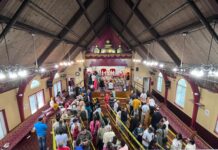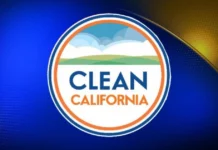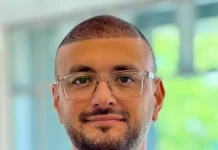Vidya Sethuraman
India Post News Service
This month 3,200 students – sworn in by Gov. Newsom at a swearing in ceremony in Sacramento on Friday, Oct. 7 – begin their first academic year as College Corps fellows at one of 46 partnering colleges and universities across the state. Each student will receive up to $10,000 for completing a year of service in the community, either tutoring and mentoring low income students, distributing meals to those facing food insecurity, or taking climate action. 80% of fellows are students of color, 58 percent are first-generation college students, and 68% are Pell grant eligible. 500 fellows are AB 540 Dream Act students.
Launched by Gov. Newsom in 2021, College Corps represents the first and largest state level investment in a college service program in the country, with $146 million earmarked for up to 6,500 students over the next two years. Speakers at the EMS Briefing talked about the vision that inspired the program, how it works, who is eligible, how to apply and where students will do their community service.
Josh Fryday, California Chief Service Officer said that in today’s environment, students are often deeply affected by climate change, food shortage, security considerations, debt crisis and other pressures. Therefore, in the many meetings and communications with Newsom, the project was successfully launched, allowing students to earn scholarships while benefiting others.
And this project is also progressing very smoothly. It is a win-win for students and the society to see students apply their own values in the community and train their skills to socialize. He added that the service plan will include all 46-campuses within the UC system. In the early days of the project, the response was so enthusiastic that they had to select the current 3,200 candidates from nearly 10,000 outstanding candidates. In the future, we will continue to hold this service project, hoping that young people can find their life goals, experience the power of service and giving back, and make good use of their abilities in the rest of their lives to benefit the community.
Debbie S. Espinosa, President & CEO, FIND Food Bank said that she is very happy that after the project starts, more people can be benefited by setting up better service sites on campus for beneficiary students.
Wendi Lizola, a student at California State University in Sacramento (CSUS), said that because of her status as a dreamer, she struggled with her parents when she was growing up. Therefore, the opportunity to obtain the service plan is undoubtedly a financial relief for her and her family. She hopes to serve more people of different ethnic groups after graduating from the nursing course in the future.







